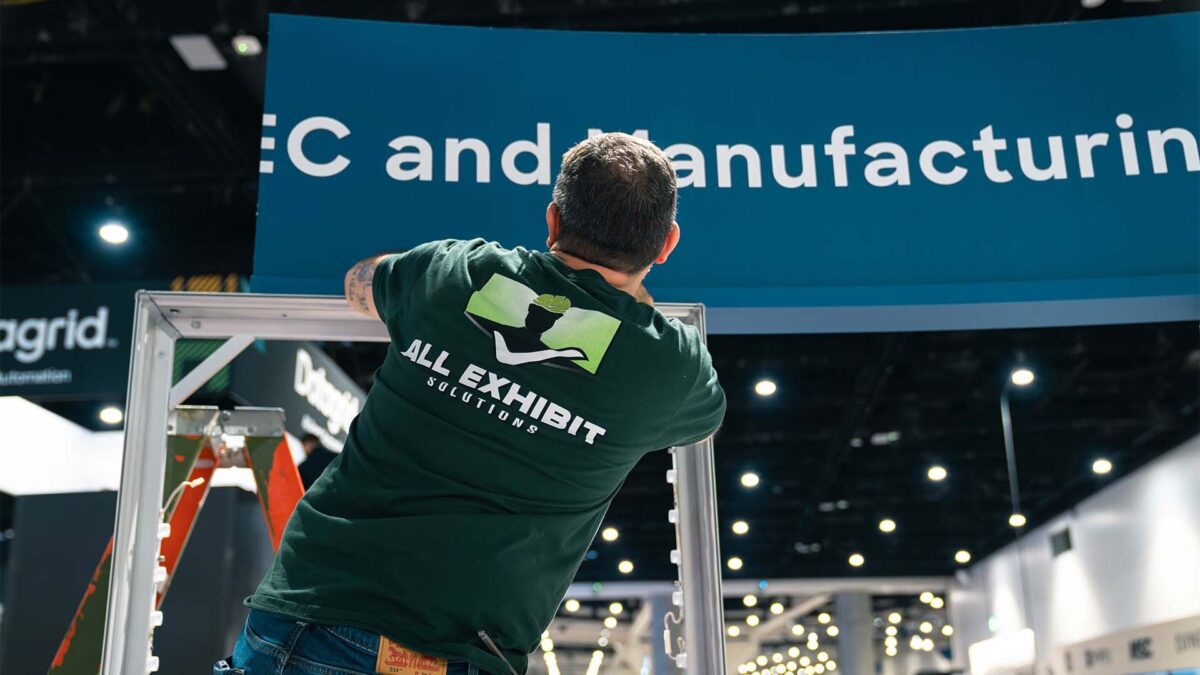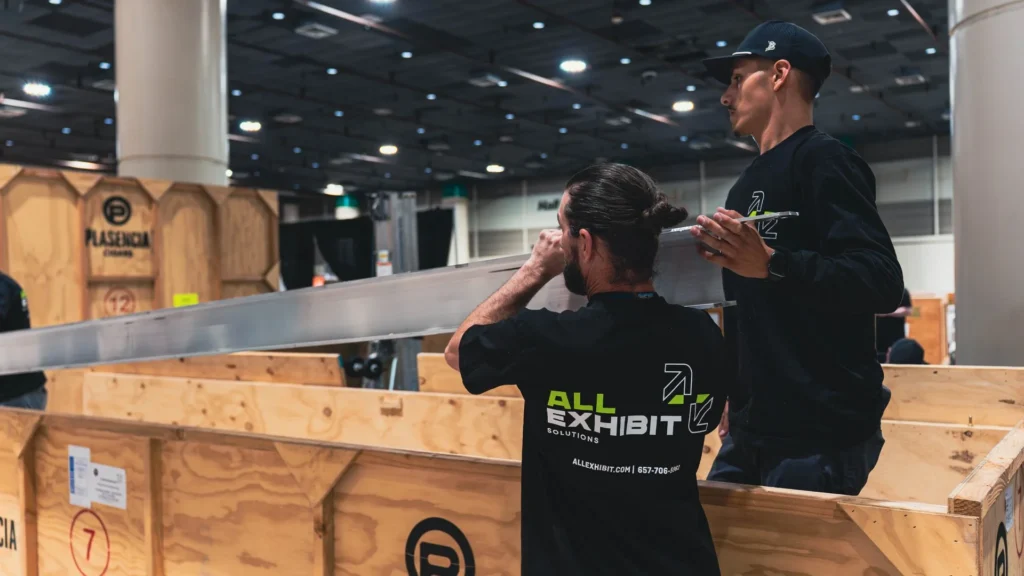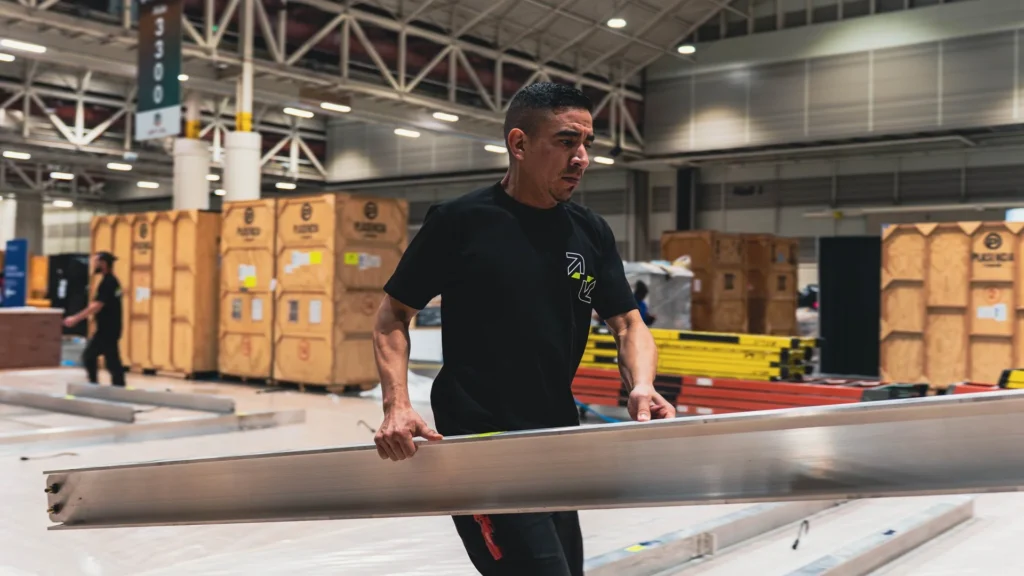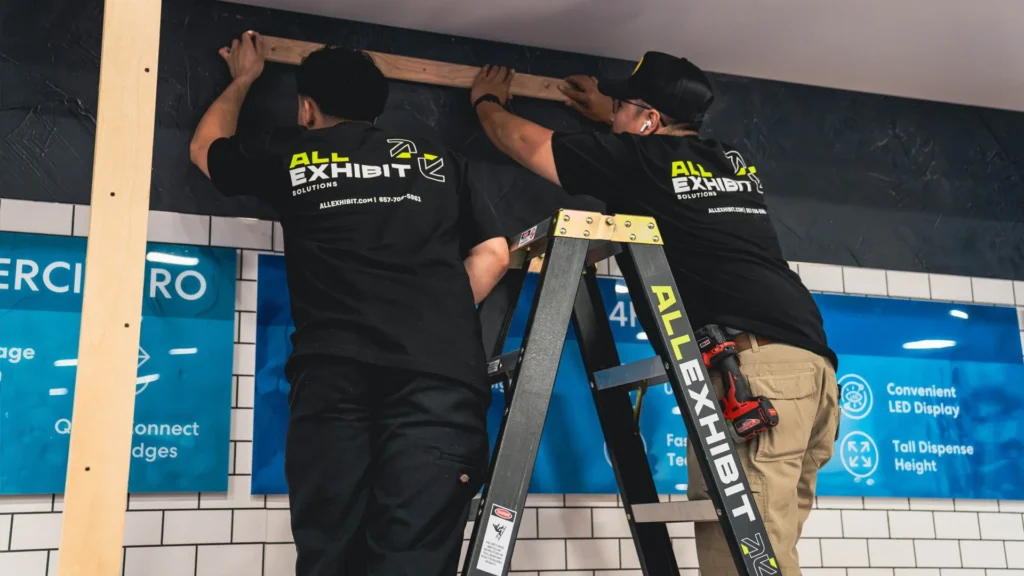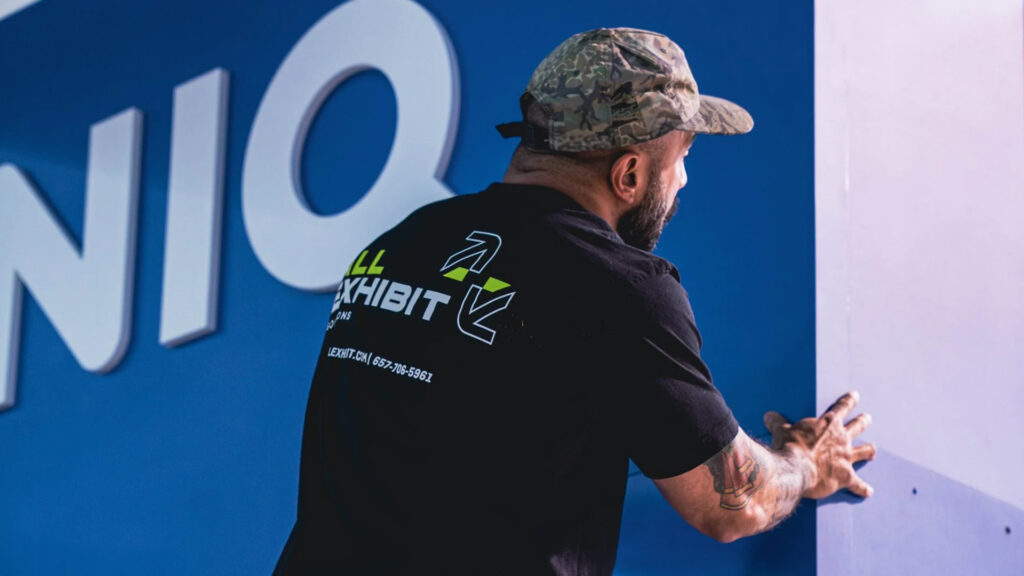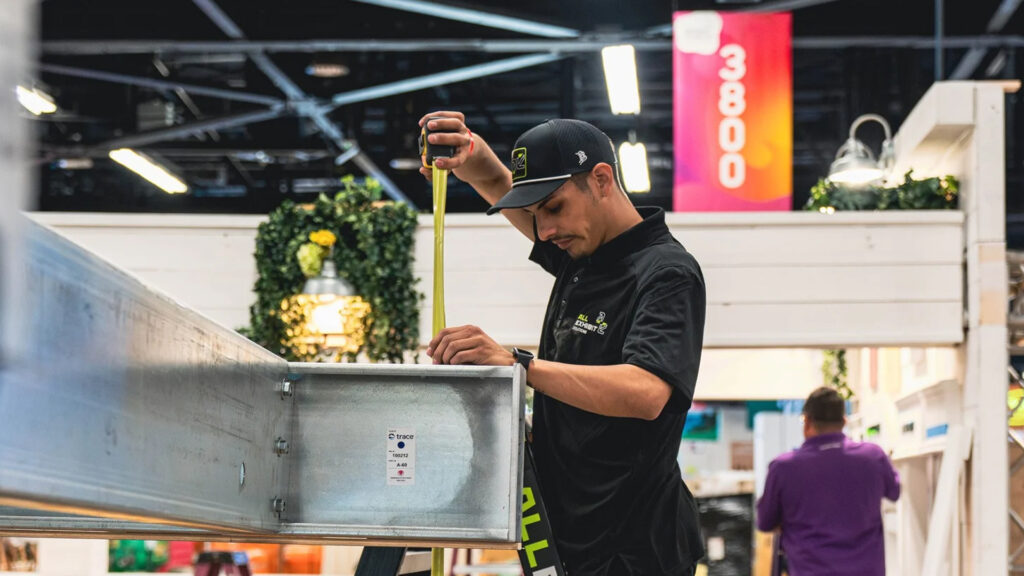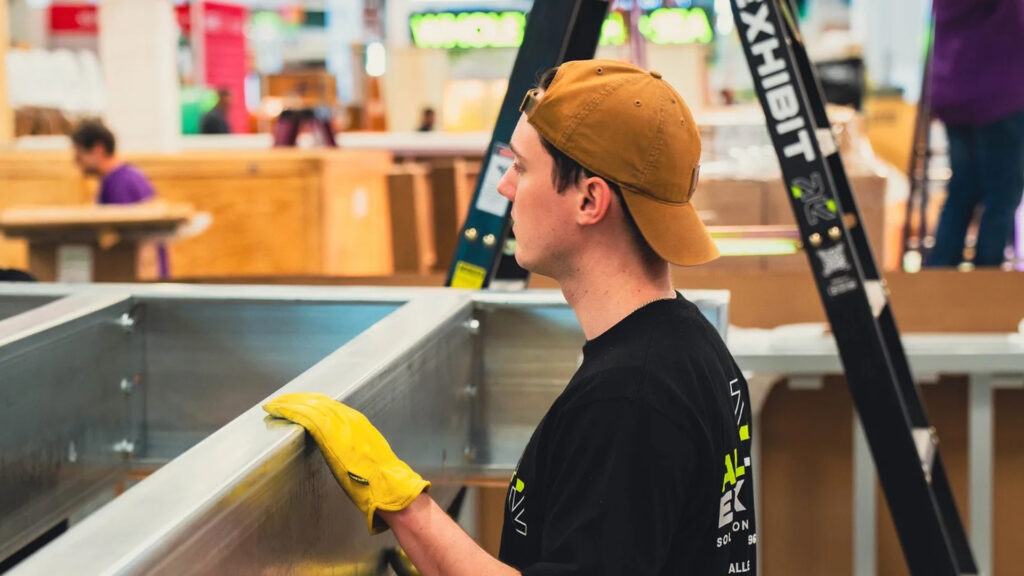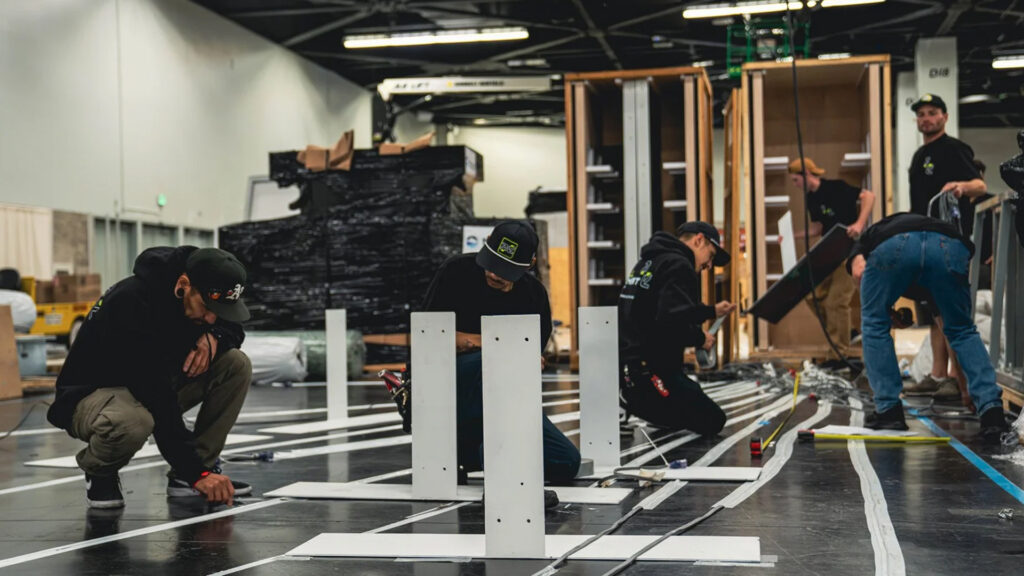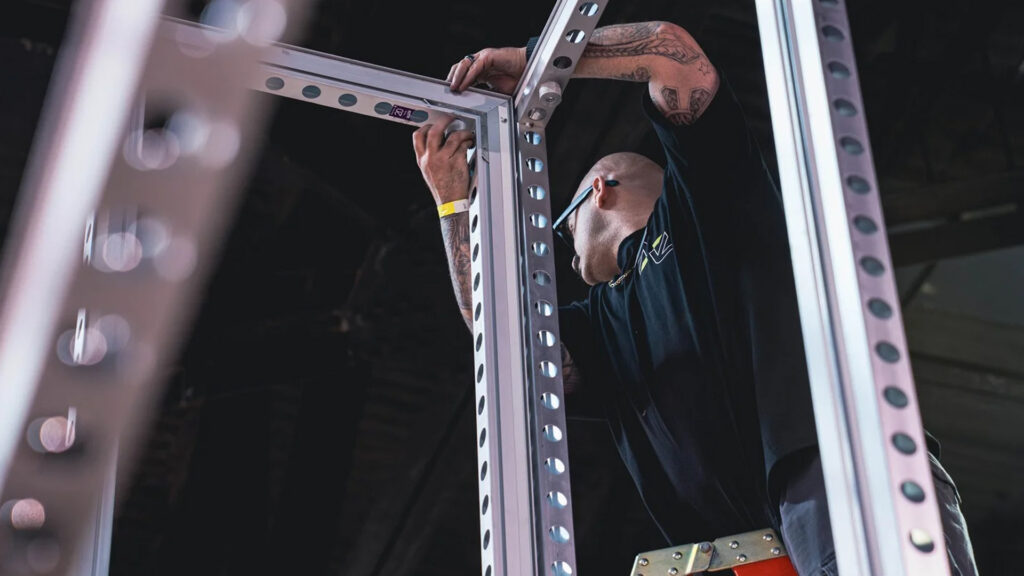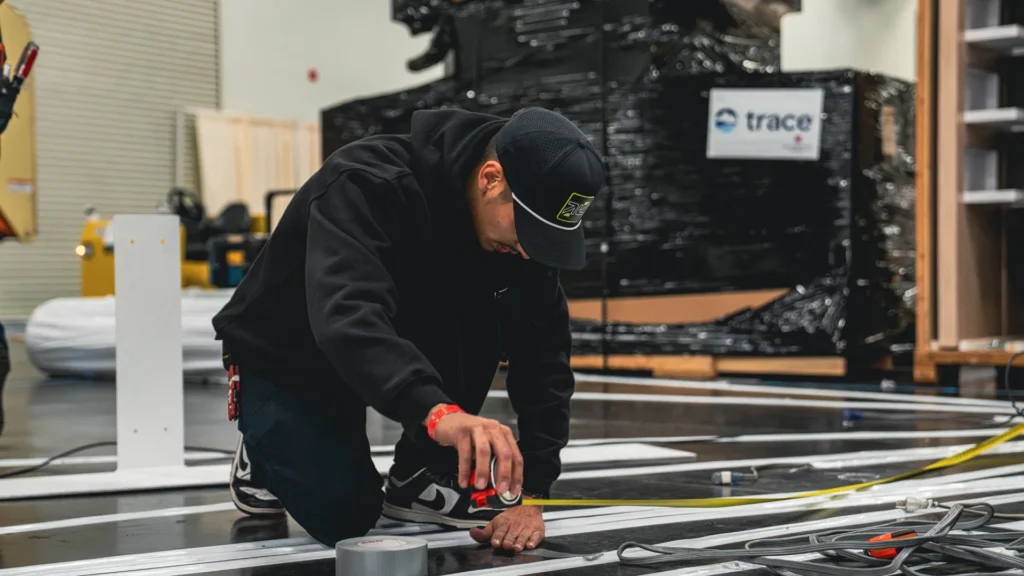- Introduction
- Defining the Role of a Trade Show General Contractor
- Why Trade Show General Contractors Are Essential
- Key Services Provided by a Trade Show General Contractor
- Trade Show Contractor vs. Exhibit Company: What’s the Difference?
- How to Choose the Right General Contractor for Your Trade Show
- Benefits of Working with a Reliable General Contractor
Introduction
Trade shows are bustling hubs of business activity where companies come to showcase their latest innovations, connect with potential clients, and make lasting impressions. But behind the scenes, there’s an intricate web of logistics, planning, and coordination that makes these events possible. One of the key players in ensuring the smooth operation of a trade show is the general contractor. Whether you’re a seasoned exhibitor or a first-timer, understanding the role of a trade show general contractor can help you navigate the complexities of the trade show environment.
In this blog, we’ll break down the responsibilities and importance of trade show general contractors, how they collaborate with companies like All Exhibit Solutions for booth installation and dismantle, and why they are essential for any successful event.
Defining the Role of a Trade Show General Contractor
A trade show general contractor is the backbone of a well-organized event. They are responsible for overseeing the logistics of the entire show, working directly with the event organizer, exhibitors, and the venue. Essentially, the general contractor is the one who ensures that the show goes off without a hitch, handling everything from booth layout to the final dismantlement of exhibits.
At its core, a trade show general contractor is like the conductor of an orchestra, ensuring that every element—from electrical setup to booth arrangement—comes together in harmony. Their role involves coordinating with various suppliers, ensuring compliance with venue regulations, and managing the flow of labor, equipment, and materials. This ensures exhibitors like you can focus on what matters most—connecting with your audience and showcasing your products or services.
Key responsibilities of a trade show general contractor:
- Coordinating event setup and breakdown
- Overseeing booth layout and space allocation
- Ensuring compliance with venue rules and safety regulations
- Managing labor teams for installation and dismantling
- Handling on-site logistics and troubleshooting issues as they arise
For businesses working with a general contractor, it’s important to understand the value they bring to the table. Their experience and expertise can mean the difference between a seamless event and a chaotic one. And when you work with a company like All Exhibit Solutions the collaboration with a general contractor becomes even more essential.
Why Trade Show General Contractors Are Essential
If you’ve ever attended a trade show, you know how many moving parts are involved. From the moment the first crate is unloaded to the last exhibit torn down, there are countless logistics that need to be handled. This is where a general contractor becomes indispensable.
One of the primary reasons a trade show general contractor is so vital is their ability to streamline operations. They manage the master floor plan, coordinating booth layouts and making sure exhibitors are in compliance with the venue’s regulations. This includes everything from electrical and internet connections to the placement of signage and displays. Without this coordination, it would be difficult for exhibitors to know where to set up, what resources they have access to, or how to ensure their booth meets safety requirements.
Key areas where general contractors make a difference:
- Booth Layout: General contractors are in charge of the overall floor plan, ensuring that each booth is placed correctly according to the exhibitor’s requirements and the venue’s specifications. They coordinate the spacing, aisles, and pathways to maximize traffic flow.
- Safety Protocols: Ensuring that each exhibit complies with safety regulations is a top priority. This includes overseeing electrical setup, rigging, and the placement of heavy materials to ensure safety for both exhibitors and attendees.
- On-site Troubleshooting: Should any issues arise during the event setup or breakdown, the general contractor is responsible for resolving them quickly to keep the show running smoothly. This might involve managing last-minute changes, handling technical difficulties, or addressing unexpected delays.
Ultimately, trade show general contractors ensure that the event runs according to plan, giving exhibitors peace of mind that they are in capable hands. Without their oversight, the entire trade show could descend into chaos.
Key Services Provided by a Trade Show General Contractor
The role of a trade show general contractor goes far beyond basic event management. Their services cover every logistical detail to ensure the event runs like a well-oiled machine. Here’s a closer look at the key services they provide:
Booth Layout Design Coordination
One of the general contractor’s primary tasks is to work with exhibitors and the event organizer to create a functional and aesthetically pleasing booth layout. This involves allocating booth spaces, ensuring proper aisle spacing, and managing the flow of traffic to maximize engagement.
Managing Transportation Logistics
General contractors are responsible for the movement of equipment and materials to and from the event site. This includes coordinating shipping, receiving, and storage of exhibit materials. They manage the loading docks, ensuring that crates and exhibits are delivered to the right booth locations on time.
Overseeing Installation and Dismantling
While companies like All Exhibit Solutions handle the actual installation and dismantling of trade show booths, the general contractor ensures that the process runs smoothly. They schedule the setup and breakdown times, coordinate labor teams, and ensure that all necessary resources—like forklifts, rigging, and electrical hookups—are available when needed.
Coordination of Labor Teams
Labor coordination is one of the trickiest parts of any trade show setup. General contractors manage the various labor teams needed for installation, dismantling, electrical work, carpentry, and more. They ensure that the right people are in place at the right time, avoiding delays and confusion.
Other services provided by trade show general contractors:
- Ensuring compliance with local and venue-specific regulations
- Managing exhibitor services, such as utilities and technical support
- Providing signage, carpeting, and other exhibit infrastructure
- Ensuring proper waste management and post-event cleanup
Trade Show Contractor vs. Exhibit Company: What’s the Difference?
It’s easy to confuse the role of a general contractor with that of an exhibit company like All Exhibit Solutions, but the two serve distinct functions. While both are essential to the success of a trade show, their responsibilities are quite different.
A trade show general contractor is responsible for the logistics of the entire event, as we’ve discussed. They focus on the broader picture, making sure all exhibitors are set up correctly and in compliance with regulations. On the other hand, an exhibit company focuses on the individual exhibitor’s booth. Companies like All Exhibit Solutions specialize in the physical installation and dismantling of the booth, ensuring that it is built to the exhibitor’s specifications and ready for display.
In short, the general contractor manages the event as a whole, while the exhibit company handles the specifics of booth construction and design.
How to Choose the Right General Contractor for Your Trade Show
Choosing the right general contractor for your trade show is a critical decision that can make or break your event experience. Here are some tips to help you make the right choice:
- Experience: Look for a contractor with a proven track record in managing trade shows similar to yours. Experience with large-scale events is a good indicator of their ability to handle complex logistics.
- Communication Skills: A general contractor must be able to communicate effectively with exhibitors, the event organizer, and venue staff. Clear and prompt communication can prevent misunderstandings and delays.
- Familiarity with Venue Regulations: Every venue has its own set of rules and regulations, from safety protocols to loading dock access. A good general contractor will be well-versed in these requirements and ensure that your exhibit complies.
- References: While client testimonials may not be your first point of reference, asking for recommendations from past clients can give you valuable insights into the contractor’s reliability and performance.
Benefits of Working with a Reliable General Contractor
There are numerous benefits to working with a dependable general contractor, including:
- Stress-Free Event Management: A trusted contractor takes the burden off your shoulders, managing everything from setup to breakdown.
- Streamlined Logistics: With a general contractor in place, all the logistical details—like booth placement, labor coordination, and compliance—are taken care of.
- On-Time Booth Installation and Dismantling: Working with a professional ensures that your booth will be ready when the event opens and efficiently dismantled when it closes, preventing costly delays.
Contact All Exhibit Solutions today for expert trade show booth installation and dismantle services that will make your next event a success!

